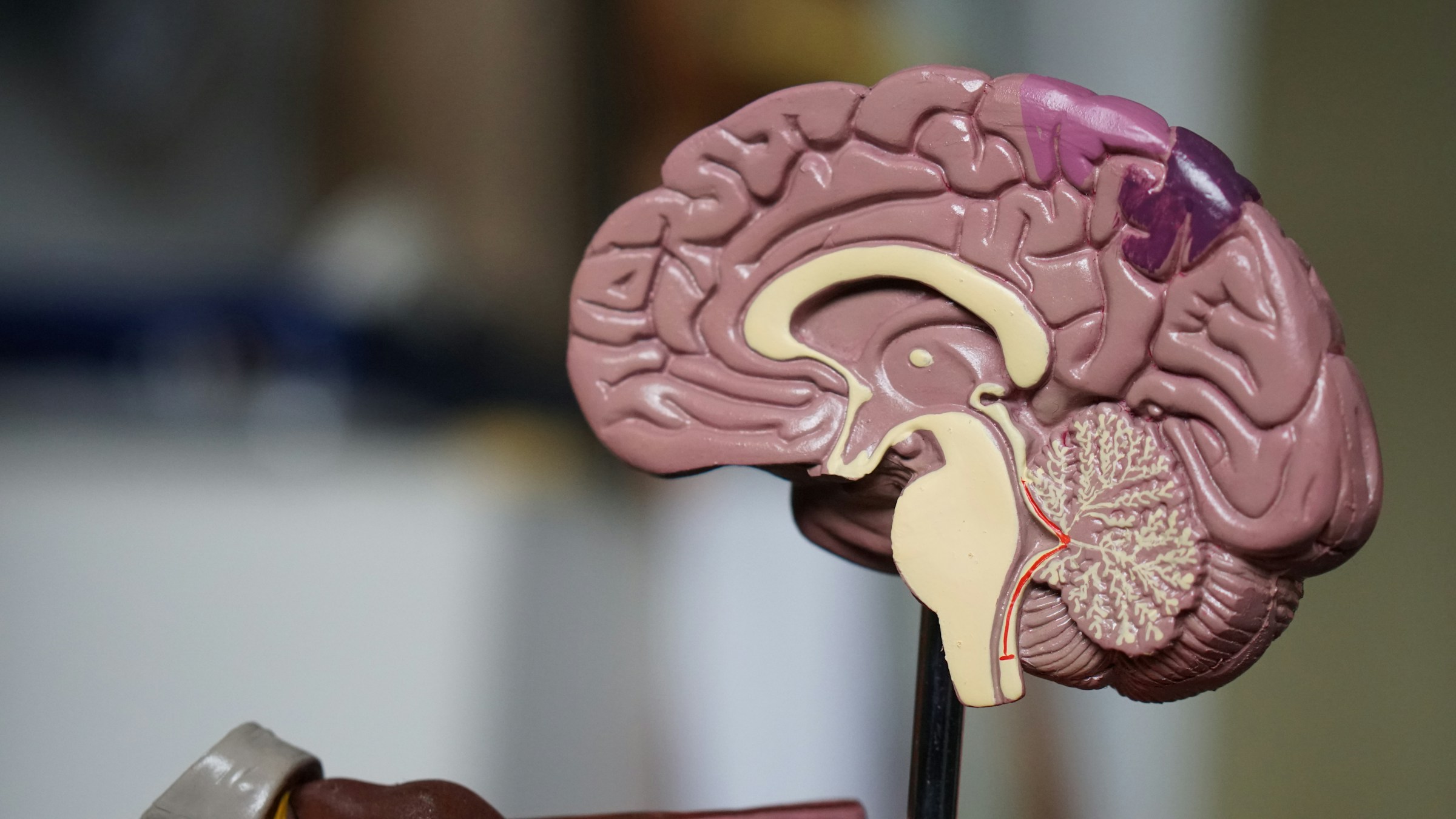The human brain is the greatest wonder of nature, capable of incredible feats. As a complex organ, the human brain undergoes significant development during childhood. A child’s growth is rapid and significant. When parents and caregivers understand these developments, it will provide optimal support for the brain development of children and their overall well-being as well. This article will explore 10 fascinating aspects of brain development in children.
1. Brain Development in Children Begins Early:

Even before the birth, the brain development in children starts. The foundation for cognitive, emotional, and social skills is laid during the prenatal stage. During pregnancy, exposure to a stimulating environment, such as listening to music, reading aloud, or talking to the baby, can impact positively brain development.

2. The Brain is Plastic:
One of the fascinating features of the brain development in children is its plasticity. In another way, we can say that the brain is adaptable and can change in response to experiences. While positive experiences (such as learning new skills) can strengthen brain correction, negative experiences can hamper its development. This plasticity, during childhood, makes it an ideal time for learning and development.
3. Nutrition Matters for the Brain Development in Children:

The brain needs fuel to function properly. A balanced diet with essential nutrients is crucial for brain development, which helps to reach the goal of a child’s overall health and well-being. Nutrients provide the building blocks and energy necessary for the growth of the brain.
(a) Omega-3 Fatty Acids:
Omega-3 Fatty Acids are essential nutrients. Omega-3 Fatty Acids are found in fatty fish like mackerel, salmon, and sardines. Besides these animal sources, one can consider nuts, seeds, and flaxseed oil as plant-based sources of Omega-3 Fatty Acids. Omega-3 Fatty Acids are the most important for the development and function of brain cells. Various cognitive functions such as memory, attention, and problem-solving are powered by this nutrition.
(b) Iron:
Iron is another vital element for brain development. Hemoglobin is a protein in red blood cells that carries oxygen to the brain and other organs. Iron produces hemoglobin. Lack of iron can lead to fatigue, irritability, and difficulty concentrating. Iron is found in plenty in poultry, fish, beans, lentils, and fortified cereals.
(c) Other Essential Nutrients:
Besides iron and Omega-3 Fatty Acids, other nutrients are also important for brain development in children. These include:
- Vitamin B12: Vitamin B12 is essential for producing red blood cells and maintaining nerve cells. Meat, poultry, fish, eggs, and dairy products are very good sources of vitamin B12.
- Folate: Folate is necessary for the production of red blood cells and the development of the neural tube, which is the precursor to the brain and spinal cord. It is found in leafy vegetables, beans, and fortified grains.
- Choline: Eggs, liver, and soybeans are rich in Choline, important for brain development and memory.
Parents can provide the foundation for optimal brain development in children which can support their lifelong learning and success by ensuring their child consumes a balanced diet that includes these necessary nutrients.
4. Sleep is Crucial for the Brain Development in Children:

Sleep plays a very important role in the brain development of children. Let’s elaborate:
- Memory Consolidation: The brain transfers information from short-term memory to long-term memory during sleep. With this process, children remember what they have learned throughout the day.
- Brain Cell Growth: New brain cells are generated during sleep, especially deep sleep. The new cells help the brain development of children by increasing their cognitive abilities and emotional regulation.
- Information Processing: Sleep helps the brain to process and organize information, making it easier to understand and recall.
- Emotion Regulation: Deficiency of sleep can lead to irritability, mood swings, and difficulty controlling emotions as sleep helps in emotion regulation.
- Cognitive Functions: Adequate sleep is vital for cognitive functions such as attention, problem-solving, concentration, and decision-making.
Reasons Why Sleep is Important in Childhood and Adolescence:
- Learning and Development: Learning and development in a child is active. They acquire new skills during these days. Proper sleep is essential for consolidating memories and processing information.
- Rapid Brain Growth: It is a fact that the brain undergoes significant growth and development during childhood and adolescence. Sleep supports this growth.
Some of the Consequences of Insufficient Sleep:
- Health Issues: Sleep deprivation for a long time can lead to various health issues, including obesity, a weakened immune system, and an increased risk of chronic diseases. Thus it can affect the brain development in children.
- Poor Academic Performance: Inadequate sleep can negatively mark a child’s ability to learn, focus, and remember information, and this can lead to lower academic performance.
- Behavioral Problems: Lack of sleep can contribute to behavioral problems like aggression, impulsivity, and hypertension.
Therefore, prioritizing sleep for children and adolescents is essential to support their brain development, academic achievement, and overall well-being.
5. The Impact of Early Childhood Education on the Brain Development in Children

A child exposed to a stimulating environment during the early years generally possesses good cognitive, language, and social skills. So, education in early childhood has a crucial role in the brain development in children.
Cognitive Development
- Language Development: Childhood education allows children to develop their language skills. A child must be exposed to a rich language environment to learn new vocabulary, grammar, and communication skills.
- Memory and Attention: Disclosure of various learning experiences can help children develop their memory and attention skills, which are essential for learning and academic success.
- Problem-solving: Early childhood activities often incorporate and encourage problem-solving skills and critical thinking which help children develop the ability to analyze information, find solutions to challenges, and make decisions.
Social and Emotional Development
- Social Skills: Childhood education often focuses on teaching children social skills, such as cooperation, sharing, and conflict resolution. Such skills are necessary for building and maintaining social relationships.
- Emotional Regulation: if a child gets exposure to a supportive environment, he/she can help with emotional regulation skills, which are crucial for managing their behaviors and emotions.
- Self-Esteem: Early childhood programs can help children develop a strong future for future learning. A child who attends high-quality early childhood programs is more likely to be successful in educational institutions and have better outcomes in life. The skills of self-esteem can help children develop the skills and knowledge they need to succeed in institutions and beyond.
6. Play is Crucial

Besides, being a pastime for children, play has a vital aspect in the brain development of children
Cognitive Development
- Problem-solving: A child, while playing, faces many challenges and learns to overcome and find solutions. Thus grows his/her problem-solving skills which he/she can apply to various situations.
- Critical Thinking: For children, critical thinking development skills are important as they analyze situations, make decisions, and evaluate outcomes.
- Creativity: If children are engaged in imaginative play, it encourages them to think outside the box and explore new ideas. This helps their creativity and innovation.
Social and Emotional Development:
Play, for children, can help to understand and manage their emotions. While they play, they learn to express their feelings and cope with the challenges face. Play also gives chances for children to interact with others, and learn sharing, cooperation, and resolving conflicts. These skills are essential for building and maintaining relationships.
Physical Development:
- Play, such as running, jumping, and climbing, assists children in growing gross motor skills, which are crucial for physical coordination and balance.
- Building with blocks or drawing and other activities helps children develop fine motor skills, which are necessary for tasks like using utensils and writing.
Parents can help their children develop essential play skills that will benefit them throughout their lives.
7. Early Childhood Education Matters
Early childhood education occupies a crucial role in shaping the process of brain development in children. Exposure to stimulating learning environments during the early years can have a lasting impact on a child’s cognitive, language, and social skills.
Cognitive Development:
- Problem-solving:
- Problem-solving: Childhood activities often include affairs that encourage critical thinking and problem-solving. These activities also help children develop the power to analyze information, make decisions, and come up with solutions to challenges.
- Memory and Attention: As children get exposure to a variety of learning scopes, it helps them develop their memory and attention adeptness. Such skills are essential for learning and academic success in their future life.
- Language Development: Early education for children supplies scopes for children to increase their language skills. A rich language environment helps children in learning new vocabulary, grammar, and other communication skills.
Social and Emotional Development:
- Social Skills: Early childhood initiatives often make the backbone of the teaching of various social skills, such as cooperation sharing, and conflict solving. These are very important for building and maintaining relationships throughout life.
- Self-Esteem: Early childhood actions can help children develop a constructive sense of self-esteem which has a significant role in the overall well-being and success of a child’s life.
- Emotional Regulation: Adequate and proper exposure to a supportive and nurturing environment can help children grow emotional regulation skills, the essential elements for managing children’s emotions and behavior.
The Brain Development in Children Makes the Foundation for Future Learning:
Childhood education offers a strong foundation for future learning. A child who is offered high-quality early childhood schemes is more likely to be successful in academic institutions and have a better future life. Early childhood education has a significant role in the brain development of children. Stimulating the learning process can help children develop language, cognitive, and social skills. Exposures to quality early childhood programs can provide a strong foundation for future learning and future life. Parents, by investing in proper early childhood education, can help children reach their full potential for a bright future.
8. Bilingualism for Boosting Brainpower

It’s a proven fact that learning a second language has cognitive benefits, such as improving attention, creativity, and problem-solving skills. Bilingualism can also empower extraordinary function skills, which are essential for success in institutions and life.
9. Music for the Benefits of Brain Development

Music has immense power to grow sensibility in both aesthetic and practical ways. Learning an instrument to play or getting engaged in music affairs enhances cognitive development, which includes memory, attention, and problem-solving abilities. Music also improves mental and emotional well-being.
10. Screen Time Should Be Limited

Spending excessive time on the screens of various gadgets is an undeniable problem of this era. It does have enormous negative impacts on brain development and eyes as well. Parents need to be careful to limit their child’s exposure to screens, especially before bedtime because it can cause delayed sleep. On the contrary, children should be encouraged to engage in more active play, brain-development activities, and social interactions.
Conclusion
The human brain is the most complex in its structure and function. Naturally, a child’s brain development is a very complex process that starts very early and continues throughout childhood. These 10 facts, as we hope, will provide some in-depth knowledge to parents and caregivers to create a supportive atmosphere that promotes brain development and creates stairs for a child’s lifelong upward success.
For more information regarding brain development in children, you may reach https://pmc.ncbi.nlm.nih.gov/articles/PMC3722610/
Further reading suggestions on child health https://thehealthcop.com/child-nutrition-nourishing-young-minds/



